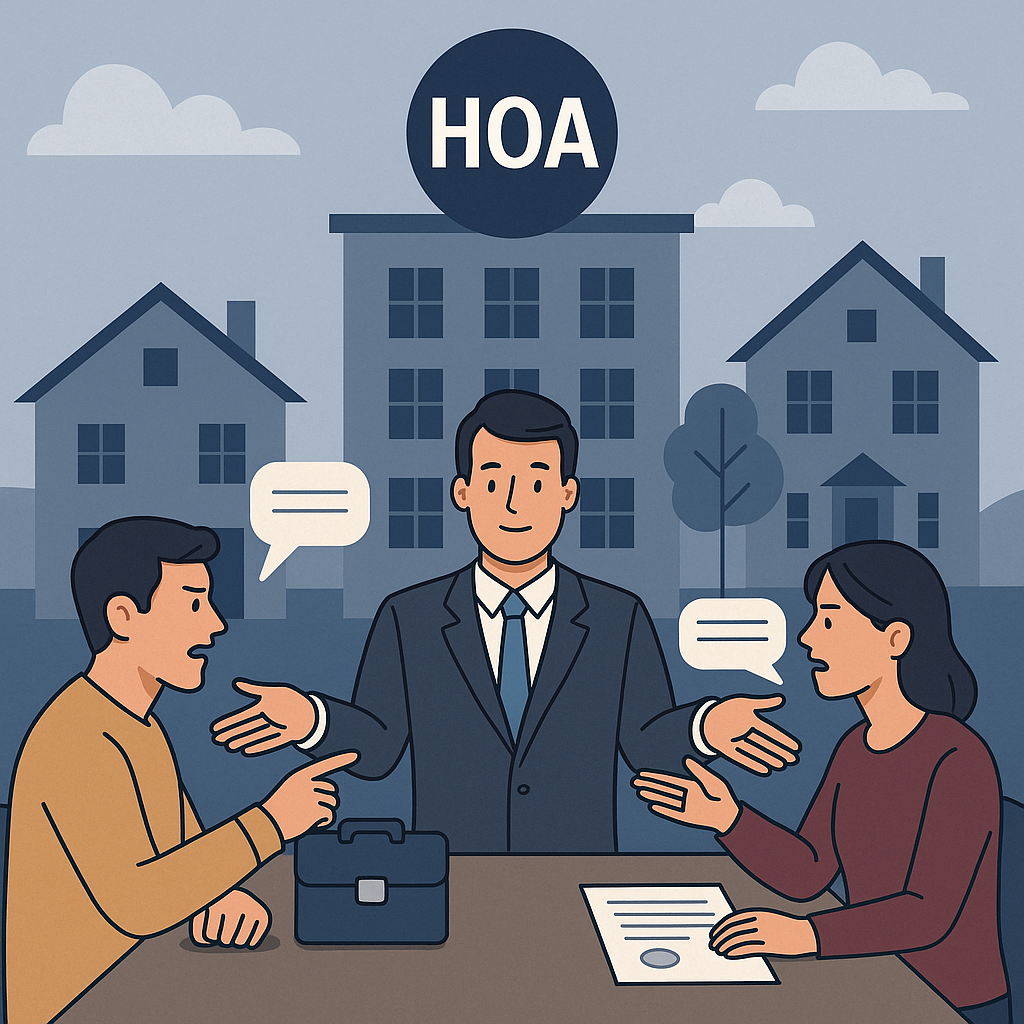How the New Utah HOA Ombudsman Impacts Landlord-Tenant and HOA Disputes
A plain-English guide to what the office does, how to file, and when to escalate
Utah has taken a big step toward improving housing fairness and communication with the creation of the Office of the Homeowners Association Ombudsman. Designed to help both residents and associations navigate disputes, this new office brings structure, mediation, and accountability to common community conflicts.
This guide explains how the program works, what issues it handles, and how landlords, tenants, and HOA boards can use it before turning to the courts.
What Is the Utah HOA Ombudsman?
The Utah HOA Ombudsman is a new state office that helps resolve disputes between homeowners associations and residents. It serves as a neutral third party to encourage compliance, mediate disagreements, and educate both sides on their rights and obligations under Utah law.
The office operates within the Utah Department of Commerce to reduce legal costs and court backlogs while promoting fair, informed communication in shared communities.
What Does the HOA Ombudsman Do?
The office commonly assists with:
- Complaints about HOA fees, fines, or late payment penalties
- Disagreements over bylaws, rules, or access to common areas
- Maintenance and repair issues involving shared property
- Questions about elections, records, or board transparency
- Guidance for landlords who rent within HOA communities
The role is educational and mediative, not punitive. The office may investigate and support compliance under Utah’s HOA statutes, including Utah Code §§ 57-8a-101 and related provisions.
How to File a Complaint or Request Help
Homeowners, tenants, or landlords can file a complaint directly with the Ombudsman. The process typically involves:
What Kinds of Disputes Are Handled?
Most disputes involve financial fairness, maintenance responsibilities, or transparency. Common examples include:
- Improper late fees or special assessments
- Denied access to records or voting rights
- Landscaping, exterior changes, or parking rule disagreements
- Rental property owners caught between HOA rules and tenant behavior
For serious or repeated violations, cases may be referred for enforcement under the Utah Community Association Act.
How Does It Affect Landlord-Tenant Relationships?
Landlords in HOA communities must balance tenant needs with association rules. The Ombudsman can clarify which rules apply, help mediate landlord-HOA disagreements, and outline the steps needed for compliance.
Tenants may also seek guidance if HOA rules affect access or quality of life, such as amenity use or parking. While lease terms remain in place, the office helps ensure HOA enforcement aligns with Utah housing law.
Mediation and Enforcement Options
The Ombudsman promotes voluntary mediation to resolve issues quickly and affordably. If problems persist, the office can:
- Recommend corrective actions to the board
- Refer matters to the Utah Department of Commerce
- Educate boards and owners on relevant Utah Code sections
Mediation through the Ombudsman is free or low cost compared to private counsel and often faster than filing in court.
When Should You Escalate to Court?
If mediation fails or one party refuses to cooperate, homeowners and landlords can file claims in small claims or district court. The Ombudsman cannot represent you, but documentation from the process may support your case. Escalation is common when:
- The HOA ignores or violates notice requirements
- A landlord faces financial harm from improper actions
- Mediation attempts are unsuccessful or repeatedly delayed
Video & Social Learning Hub
YouTube: Utah HOA Ombudsman & HOAs
Instagram: HOA Ombudsman Highlights
Key Takeaways
The Ombudsman offers a neutral, low-cost path to resolve HOA disputes.
It supports owners, tenants, landlords, and boards with education and mediation.
Serious or repeated violations can be referred for enforcement.
If mediation fails, small claims or district court may be the next step.
Need Help Applying This To Your Situation?
Dealing with an HOA or rental dispute in Utah does not have to mean going straight to court. The HOA Ombudsman gives homeowners, tenants, and boards a faster, fairer path to resolution.
Talk to a Utah AttorneyFor more Utah housing insights, visit Utah Law Explained, where we turn complex Utah laws into clear, practical guidance for everyday life. This article provides legal information only not legal advice.
